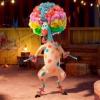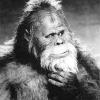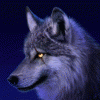Crypto~ I'm sorry, but you can't say that by reading Leakey' s Origins that anyone will be getting the latest thinking on the topic of human evolution..I read that as one of my textbooks in a physical anthropology class back in mid 90's at the latest, if not before. Within that field there are many opposing and conflicting theories of how we came to be, and the route that path took. One guy makes a find, claims it to be a pivotal point in our evolution, fitting it into his own systematics, vindicating his theories and life's work, while discrediting the research of others, then a few years later, dating techniques or DNA recovery methods improve and make apparent both schools of thought had part of it right, but by no means completely so. With the fossil record as fragmented and hugely non-representational as it is due to the very nature of the process, I would think that a clear progression of developmental forms derived from what we've dug from the earth is still a ways off.
After all, one might consider the possibility that those species discovered in the fossil beds of Africa are in fact evolutionary lines of the species we humans either displaced to lesser habitats/ecosystems as our populations expanded or drove to extinction as we moved into their regions from where we developed, perhaps an environment less conducive to the process of fossilization, thereby leaving no tangible evidence of our rise, but rather only the bones of those we outcompeted and replaced(at least I didn't say "ate"...)
But until we get a reliable eye-witness or go through the entire mantle with one of those little bone-brushes and a sporty hat we're none too apt to know the whole story, if even then....
MIB & Shadow~ The idea that most any animal is "purely instinctual" is erroneous at best, and just to be simiocentric, especially in regards to primates. Any creature that exists in static form will be removed from the food chain by those that do not. Virtually every vertebrate have the capacity to learn, and, to some extent, modify their behaviors in response to their environment otherwise predators will eventually recognize the pattern and exploit it(an example of learning in itself)
Fish learn, amphibians learn, reptiles learn, birds learn as do mammals...things learned by individuals through either experience or the teaching of others, that give rise to new behavior patterns denotes non-instinctual components of their being.
As for good and evil, well, I bet you could write a whole book on that alone...lol however it's manifestation in animals depends in part, I would think, on the specific individual creatures degree of sentience and self awareness within its social context, as the issue itself is indeed moote in either isolation or a vacuum..but pretty much every species I've encountered or worked with, having raised fish, herps, bird and mammals, and been a keeper at two zoos, and watched a bunch of nature shows(!) shows a fairly wide diversity of demeanor and attitude, some being placid or less apt to try to kill us straight out while other individuals are, euphemistically speaking, more on the "Kill them! Kill them all!" side of the spectrum.
Some individuals learn faster than other members of the same species, but this does not denote position on the good'n'evil continuum itself, as, except for a few individuals, it's something of a nature/nurture sorta thing in that it's rarely just one or the other, but rather, a dynamic ratio of the two(a simplification, as there's probably a number of additional influencing factors, but we humans do love our qualities!)
So such things usually are a results of our/your/their genetically provided predispositions responding to/integrating experiences interacting with the external environment, thus it really can go to any point on the compass, and alter course at any point.
Good&evil is also in part a matter of perspective...while a gazelle might well think of all lions as evil(but who REALLY knows what those gazelles are thinking....?)lions might just think most gazelles as tasty....
Do our crops and livestock view us as evil, despite the fact we feed, fertilize, water and house them all their lives, up until we kill them as food? Or is it evil to discount that last question as trivial? Ok, maybe we kill/harvest out the need to feed, but do we judge other such creatures doing the same because we are blind to our own nature, love the arbitrary moral superiority, can't resist a good double standard, read it in a pamphlet a ways back or because we're the species that invented the gavel? Maybe, nowadays,it because we pay others to do it for us,... Regardless, it does not veil our shared commonality sufficiently enough to justify the distinction we impose. Most animals exist within a social context, both intraspecifically, and intraspecifically, which, to varying extent



